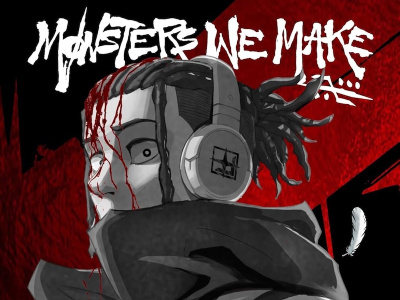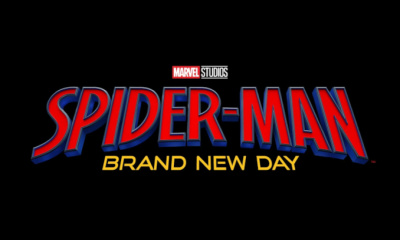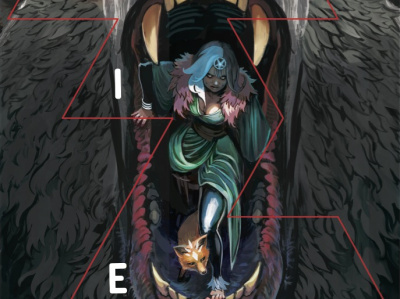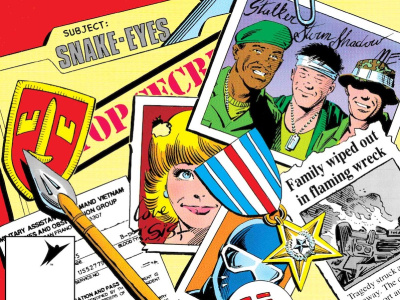
ICv2 recently caught up with Dark Horse CEO Mike Richardson. In Part 1 of the interview Richardson talks about the challenges of the current marketplace, the financial impact of Borders’ woes, the challenge of digital piracy, and DarkHorse’s move into the digital arena. In Part 2, he discusses the success of the Troublemaker graphic novel co-written by bestselling mystery author Janet Evanovich, the potential of Frank Miller’s Xerxes, new comic book publishers with studio ties, and Dark Horse’s current movie projects. In Part 3, Richardson discusses the current state of the North American manga market, the revival of Dark Horse Presents, and other key Dark Horse projects for 2011.
How was 2010 from your perspective in terms of the overall market and for Dark Horse?
It was better than the year before, obviously. We’ve had challenges with the economy and now 2010 saw us move into the digital age. We’re in a business that’s in transition so I think all of the publishers, particularly the comic publishers, are trying to figure out how to navigate this new world we find ourselves in.
Seems like the second half the year was rockier and now we’ve got the Borders situation, can you contrast the book store and comic stores for us?
Well, the comic shops seem to be a little more stable. I don’t think we’ve seen massive closure of stores, although it’s tight. Being a retailer, I know that things are tight. The book stores, of course, are going through their own transition. Borders going through its financial woes is certainly having an effect. Suspending payments to publishers over the last several months certainly doesn’t help anyone.
It’s changing for other reasons aside from the economy. We have two electronic issues. We have the new readers that are coming out. I think Barnes and Noble got way ahead of the game by developing their own reader. I know I bought one for my mom there and they were sold out in most of the stores in the Portland area (at least their premium reader was gone everywhere). Comic publishers and retailers have to figure out how to survive in this digital downloading age.
The other trend that is impacting comic sales is the pirating of work. In some cases we saw our books go up before they were even shipped. We’ve been pretty aggressive going after them, but they spring up as fast as you can put them out there. Until copyrights and trademarks are respected that will also have an impact. Most people are honest but some people feel they have the right to steal this material. What they don’t realize, is that if it continues, they’ll eventually put creators out of this business because they can’t afford to not get paid for their work. Obviously the publishers feel the same way. We put a lot of effort and work into the projects we do, and it’s not appropriate for people to steal them. Unfortunately we have a society where a certain segment feels that it’s fine to steal material.
Part of it may be that there’s no legal alternative for people who want to read material digitally right now, for most new product when it comes out anyway.
I think that the books are available pretty much anywhere. They’re certainly for sale online. To say that because you can’t get them in your preferred format that allows you to steal the material I don’t think is appropriate.
As publishers begin to expand what’s available digitally, perhaps that will have an impact on the illegal side. Do you think that’s true?
I think it’s true. I think that many people want to be honest. I think eventually if the digital material is offered at the right price, and made widely available that will help. But the bottom line is that the material has to be respected as the people who are creating and delivering it have to be respected. It’s a business; it’s not a free service.
While we’re on the topic of digital, Apple recently announced a new policy regarding how apps can work in terms of content that’s not bought through iTunes. Is that impacting Dark Horse's plans for its own digital launch?
If you saw our announcement in New York in late 2010, you know that it is impacting us. We basically were about to launch when they announced their new policy. Of course that didn’t make as much news regarding Dark Horse, but certainly one of the readers that was rejected got a lot of attention.
We were set to go, so this is going to delay us a few weeks, but we’ll be fine. We have a really aggressive program. We want to put our stuff up, and we want to make it available, and we want to make it available at a really great price. Some of the challenges that we have with Apple are that we’d like to charge the price we want to charge and we’d like to make sure we have the last say in how our material is presented. But we’re like everyone else, we need to be in the Apple store, so we’ll do what we need to do. Dark Horse is into Apple in a big way--we use Macs and Apple technology for our whole company. We have iPods and iPads and iPhones and we’re very much Apple reliant. It’s not a big deal, it’s just going to delay us a few weeks.
One of the things we were excited to hear when you announced your digital program was that you were going to try to involve the brick and mortar retailers. Can you talk about that?
We’re going to have exclusive material that we’re going to make available only to the retail stores. And not only are we going to try to get customers in the store and into the program that we’re putting together, we’re also going to have (and I can’t tell you exactly how it’s going to work right now) some kind of incentive to buy while they’re in the store. So not only are we trying to bring them into the stores, we will also give them incentive to buy something while they’re in the stores. We also have some promotional plans with creators, and so on, to help the brick and mortar stores with regard to digital. We’re thinking of a lot of ways to not only get people into the stores, but also to help encourage them to buy things while they’re there.
You talked about the transition that books and comic are going through in terms of the digital revolution. One thought has been that comics is such a tiny market that perhaps the impact of digital on comics can be more positive on the print side that for something like books where there seems to be cannibalization of print for digital. For comics it’s not clear if cannibalization is occurring much. It’s really a different audience. What are your thoughts about that?
I think that as much as I love the paper products, I think we’re always limited by a certain degree of prejudice toward the material out in the retail world (and I’m not talking the comic shops, I’m talking outside the comics shops). I think we’re always limited by the distribution. As you know through history, commerce has been determined by the ability to distribute and the distribution has always been held in the hands of a few. So you have to fight the battle to get the material out there.
I envision a day where the whole world becomes your audience, so I think that if you can make the material look good, read good and have a good reading experience, that we have the opportunity to make many more comic readers than exist today. I think the numbers will grow exponentially as these readers go out and suddenly we have distribution access to the world. It would be great to have a site with your comics in five or seven different languages available for purchase around the world. That would be the ultimate. The idea, as we sit in this day and age as we work toward a digital goal on that scale, is that we don’t leave behind the retailers. We have to figure out how to create product and keep them in business because they’re the ones supporting the market right now.
For Part 2 of this interview, click here.
For Part 2 of this interview, click here.







